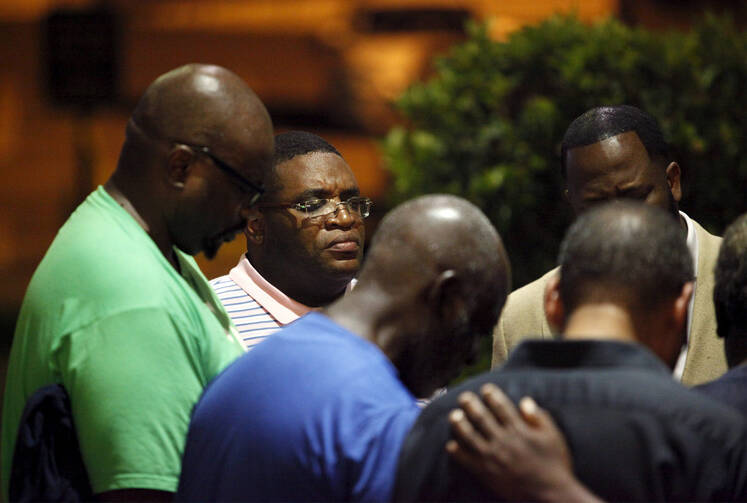I was halfway through reading “Laudato Si’” when I heard news that nine black worshipers at a Bible study had been gunned down by a white man. I kept reading, but with a bad conscience, suspecting myself of hiding in an issue more comfortable for a white theologian.
But “Laudato Si’” is not a document that should help us hide.
To readers of “Evangelii Gaudium,” the spiritual core of “Laudato Si’” is familiar: Christianity calls people to touch the painful realities of the world and teaches that doing so is the path of joy. The document reviews the grim realities of ecological damage, he writes, so that we will “become painfully aware, to dare to turn what is happening to the world into our own personal suffering and thus to discover what each of us can do about it” (No. 19). Christians call that taking up the cross and following after Jesus, who did not cling to his own security.
Those of us who “live and reason from the comfortable position of a high level of development and a quality of life well beyond the reach of the majority of the world’s population” fall into or enthusiastically embrace “a numbing of conscience and …tendentious analyses which neglect parts of reality” (No. 49). We can delude ourselves about what is happening and take on a “cheerful recklessness” (No. 59). Evasion, reinforced within privileged groups, permits us not only to look away but to count ourselves uninvolved.
Is this about the failure of global agreements on climate change or is it about the state of race relations in the U.S. and among U.S. Christians? As Francis puts it, “We are faced not with two separate crises, one environmental and the other social, but rather with one complex crisis which is both social and environmental” (No. 139).
In Francis’ hands, the need for a sober facing up to the state of our world is stark but it is not dour. Sober self-control and humility, he tells us, leads to fuller life, to spiritual freedom, to peace and patience and genuine encounter with each other and God. (No. 222) And the letter offers hope: God does not abandon us (No. 13). Grace is not defeated (No. 58).
But if we look for solutions in a way that sidesteps the grief and outrage of our brothers and sisters, the dangers that black people in this society know so well and that I avoid so easily, if we shy away from real conversations about how church life can help us evade the realities of our economic, political, social disorder, if we indulge in fantasies about things not really being so bad, then we haven’t yet begun to get Francis’ message about the joy of the Gospel and the wonder of creation.








